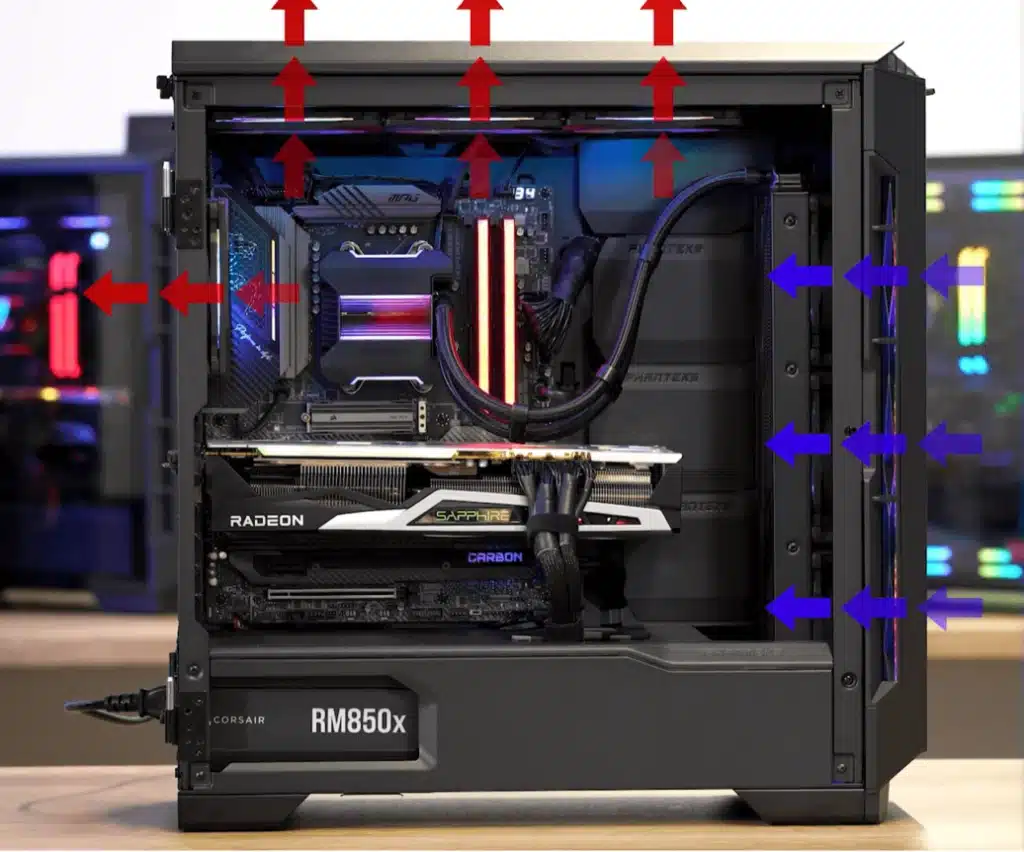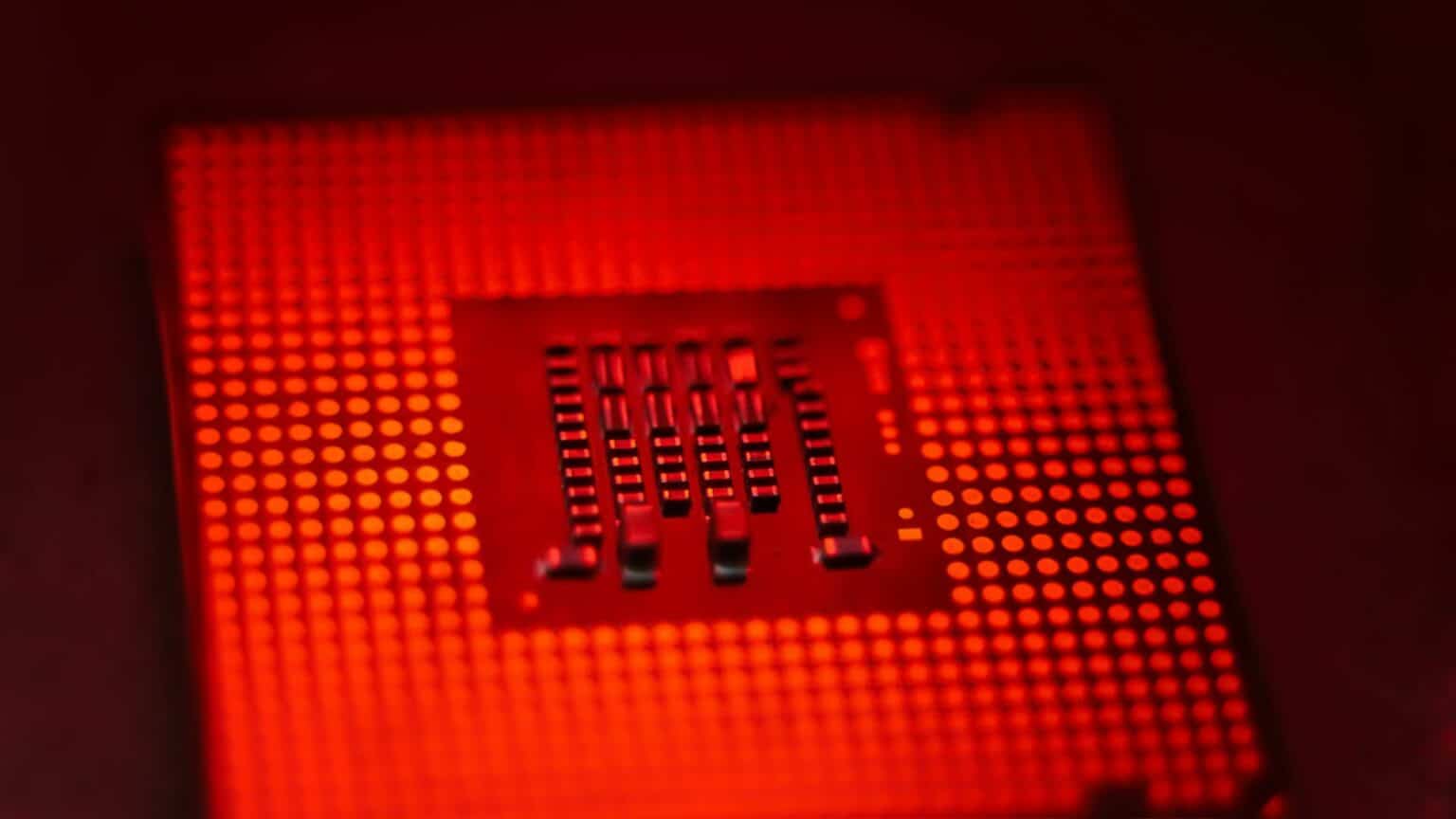Overheating can be a serious issue not only for your PC, but for the lifespan of the components in it, as well as causing issues with performance, but how can you stop your PC from overheating in the first place?
One of the most important ways to stop your PC from overheating is to first understand what could be causing so much heat, learning how to monitor it correctly, and taking steps to improve your computers airflow.
Keeping Your CPU Cool
One of the most common parts to overheat is your computers CPU (Central Processing Unit). Many modern CPUs, especially AMD’s Ryzen series tend to run a little hotter than previous CPU releases, making it vital to improve their cooling.
One way to cool your CPU more efficiently is to invest in an AIO (All-In-One) cooler. AIO coolers are pre-built water cooling units designed to offer the best cooling possible for your CPU, beyond upgrading to a full water-cooling kit.
Although, most of the best AIO CPU coolers are designed for use in gaming PCs, due to the additional strain, and therefore need for cooling, which results in many of them being extremely colorful and covered with RGB lighting.
Some of them will even come with LCD screens that will show you exact readings of your CPU temperature, helping keep your mind at ease while on your PC.
Best AIO CoolerWhile AIO CPU coolers offer the best performance, they might be a little too difficult for some users to install, or you might just simply want something a little less out there in terms of design.
There are several aftermarket CPU coolers you can pick up that will offer superior cooling when compared to a stock CPU cooler, without all the bells and whistles found in AIO coolers.
Best CPU CoolerReplace Your Thermal Paste
Depending on how often you use your PC, you might want to consider replacing your thermal paste. Thermal paste acts as a bridge between your CPU and cooler, helping migrate heat from your CPU to your cooler more efficiently.
If you want to stop your PC from overheating, you should make sure to replace your thermal paste every two to four years, to maintain the most efficient thermal conductivity.
Thermal paste is non-conductive, which means it’s safe to work with, and wont damage your hardware should you accidentally spill it.
Best Thermal PasteUpgrade to Liquid Cooling
If you own a modern PC with a powerful CPU, you might want to consider upgrading your thermal paste to liquid metal. Liquid metal offers much higher thermal conductivity, which means it’s much more efficient at transferring heat away from your processor and to your cooler.
Using thermal paste together with an AIO cooler, offers the best possible cooling, ensuring that you stop your PC from overheating, allowing your hardware to run the best it can, without throttling.
Liquid metal is conductive, which means you need to be extremely careful when applying it, if you should accidentally spill some on your motherboard, it could cause a short, so it’s important to make sure you know what you’re doing when applying it, or have a professional do it for you.
Best Liquid MetalImproving Your Airflow
While an overheating CPU is a common issue, it’s not the only cause of your PC overheating. If you’re looking to stop your PC from overheating, it’s worth checking your airflow too.
Fresh air should always come in from the front and be exhausted at the back and the top of your PC case. If you have a bigger case, such as a full tower, or even a large E-ATX case, you can also add some intake fans at the bottom.

Check Fans for Damage
If your fans are all positioned well, and your PC is still producing too much heat, you might want to check for fans with broken bearings.
After a while, bearings in your PCs fan can break, causing them to make a grinding noise, sometimes you can even hear a slight bump as they no longer rotate normally.
A fan with broken bearings will often be noticeable by the sounds it makes, and will no longer be as efficient at moving air around your case, if you want to stop your PC from overheating, sometimes it can be as simple as fixing one or more faulty fans.
Best Case FanClean Fans and Filters
When your fans draw in air, of course it’s common for them to also draw in dust too. If you don’t clean out your fans, it can often lead to them becoming less efficient at circulating air around you computer, leading to improper air flow, and in some case, overheating.
Air filters can often be another cause of overheating, much like fans. Most modern computers will come with a mesh filter that will stop as much dust entering your system, however, as dust builds up on these filters, it can also have a major impact on your air flow.
The best way to clean your fans and filter is by using a nylon brush, as this wont damage your hardware, and compressed air.
Best Cleaning KitConsider Moving Your PC
It’s important to think about where you place you computer, if it’s in direct sunlight, radiators, or any other form of heat, outside environmental factors can often impact your systems core temperature.
If you’re worried about your laptop overheating, make sure to check out where the exhaust fans are and leave them plenty of room.
If you’ve tried everything listed above, and still find that you are having issues with your PC overheating, make sure to check that you’ve placed your PC somewhere cool, it can often impact the temperatures more than most people realize.




